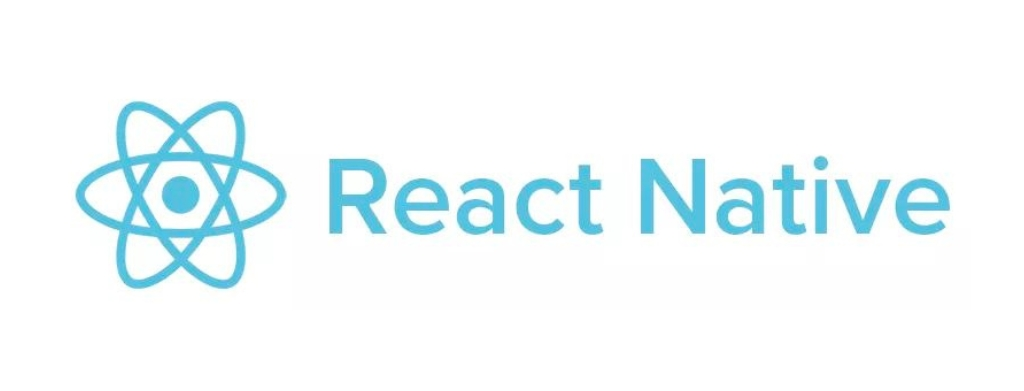
Mobile app development Software has become an integral part of our digital landscape, transforming the way we interact with technology and access information. With the widespread adoption of smartphones, businesses and individuals alike recognize the importance of having a presence on mobile devices through dedicated applications. This paradigm shift has fueled the demand for skilled mobile app developers and robust development software.
Importance of Mobile App Development:
Ubiquitous Connectivity: Mobile apps enable users to stay connected and access services on the go. Whether it’s for communication, shopping, or productivity, mobile apps have become a central hub for various activities.
Enhanced User Experience: A well-designed mobile app provides a seamless and intuitive user experience. This is crucial for engaging users and ensuring they continue to use the app regularly.
Business Growth and Reach: For businesses, mobile apps offer a direct channel to reach customers. They can expand their market reach, improve customer engagement, and ultimately boost revenue by providing convenient access to their products or services.
Innovative Solutions: Mobile apps drive innovation by leveraging device features such as GPS, cameras, sensors, and more. This enables the development of creative solutions, from augmented reality applications to location-based services.
Customer Loyalty: Apps contribute to customer loyalty by offering personalized experiences, loyalty programs, and easy communication channels. This helps in building a strong and lasting relationship between businesses and their customers.
Competitive Advantage: In many industries, having a mobile app is not just an advantage but a necessity. Businesses that invest in mobile app development gain a competitive edge by staying ahead of the technological curve and meeting customer expectations.
Need for Reliable and Efficient Development Software:
Faster Development Cycles: Reliable Mobile App development software streamlines the coding and testing processes, allowing developers to create and deploy mobile apps more efficiently. This helps in reducing time-to-market and staying competitive.
Cross-Platform Compatibility: With the diverse range of devices and operating systems, cross-platform development tools become essential. Reliable software supports multi-platform development, enabling the creation of apps that work seamlessly across various devices and operating systems.
Security: Security is paramount in mobile app development. Reliable development software includes robust security features, ensuring that sensitive data is protected and that the app meets industry security standards.
Scalability: As user bases grow, the app should be able to scale efficiently. Reliable development software supports scalability, allowing developers to build apps that can handle increased loads without compromising performance.
Community and Support: A strong developer community and reliable customer support are crucial for addressing issues, getting updates, and staying informed about best practices. Software with an active community fosters collaboration and problem-solving.
Overview
An excellent open-source framework for creating mobile apps is Adobe PhoneGap. Developers can quickly and easily construct cross-platform applications using PhoneGap by utilizing well-known web technologies like JavaScript, HTML, and CSS. This framework provides a smooth environment for creating native-like apps on various platforms, including Windows, iOS, and Android. It is based on the Apache Cordova project.
Exciting Features and Capabilities:
PhoneGap’s cross-platform development capability is one of its best advantages. Once code is written, it may be easily deployed across many platforms by developers. PhoneGap enables developers to leverage their current web development talents to the fullest by employing a web technology stack. Through plugins, this framework provides access to native device functions like the GPS and camera, enhancing the functionality and appeal of mobile applications.
Pros and Cons:
Pros:
- Cross-Platform Development: Write once, deploy everywhere, saving time and resources.
- Web Technology Stack: Developers of Mobile App Development Software can use their existing web development skills to create mobile applications.
- Access to Native Features: PhoneGap provides access to native device features through plugins, allowing for a wide range of functionalities.
- Cloud Build Service: The cloud-based build service simplifies the compilation process for different platforms.
- Active Community: Being part of the Apache Cordova project, PhoneGap has an active community, contributing to ongoing development and support.
Cons:
- Performance: Cross-platform frameworks may not perform as well as native development in certain scenarios.
- Dependency on Plugins: While there is a rich plugin ecosystem, dependence on plugins for specific features may lead to compatibility issues or a lack of desired functionalities.
- Limited Native-Like Feel: Achieving a completely native-like user experience can be challenging in some cases.
- Updates and Maintenance: The framework’s evolution and updates are dependent on the broader Cordova community.
Customer Reviews and Satisfaction:
Customer reviews for Adobe PhoneGap vary based on individual experiences. Positive feedback often highlights its ease of use, cross-platform capabilities, and integration with Adobe Creative Cloud. However, some users express concerns about performance issues and the reliance on plugins for certain features. To gain a more accurate and current understanding of user satisfaction, it’s recommended to check recent customer reviews and forums for the latest feedback on Adobe PhoneGap.
Ionic

Introduction to Ionic:
Ionic is a popular open-source framework for building cross-platform mobile applications. Leveraging web technologies like HTML, CSS, and JavaScript, Ionic allows developers to create high-performance apps for iOS, Android, and the web, using a single codebase. It is built on Angular and offers a range of tools and services for streamlined development.
Key Features and Advantages:
Ionic comes with a set of key features and advantages. It offers a rich library of pre-designed components, facilitating a visually appealing and responsive UI. The framework supports seamless integration with native device features and provides a consistent user experience across platforms. Ionic’s tight integration with Angular enables efficient development, and its single codebase approach simplifies maintenance.
Challenges and Limitations:
While Ionic has many strengths, it also faces challenges and limitations. Performance, especially for complex applications, may not match that of fully native solutions. Dependency on web technologies might limit access to certain native functionalities, and achieving a purely native look and feel can be challenging. Additionally, developers may encounter a steeper learning curve due to the integration with Angular.
Satisfaction Levels Among Developers:
Overall, developers often express satisfaction with Ionic. Its extensive documentation and strong community support contribute to positive feedback. The ability to leverage existing web development skills and create cross-platform apps efficiently is appreciated. However, challenges with performance for resource-intensive applications and the need for native-like experiences may impact satisfaction levels in specific use cases. Continuous updates and improvements from the Ionic team contribute to ongoing positive sentiments among developers.
React Native

Introduction to React Native:
React Native is a widely used open-source framework for building cross-platform Mobile App Development Services in Norway. Developed by Facebook, it enables developers to use React and JavaScript to create native-like experiences on iOS and Android platforms.
Benefits and Advantages:
React Native offers several benefits, including code reusability across platforms, a responsive and native-like user interface, and a large and active community. Its hot-reloading feature speeds up development, and it allows integration with native modules for enhanced functionality.
Potential Limitations:
While React Native is powerful, it may face challenges with performance for highly complex applications. Access to certain native modules might require additional configurations or third-party libraries. The framework’s dependence on Facebook’s updates and occasional delays in adopting new native features could be considered limitations.
Success Stories and User Reviews:
React Native has seen success in various applications, with companies like Facebook, Instagram, and Airbnb using it to build high-performance mobile apps. User reviews often highlight its efficiency in cross-platform development, quick development cycles, and a robust community. However, concerns may arise regarding occasional performance issues and the need for workarounds in specific scenarios. Overall, it enjoys positive feedback for its effectiveness in creating feature-rich and visually appealing mobile applications.
Xamarin

Xamarin Overview:
Microsoft owns the cross-platform app development framework Xamarin. It allows developers to use C# to create native applications for iOS, Android, and Windows, sharing a significant portion of code across platforms.
Advantages and Drawbacks:
The advantages of Xamarin include code sharing, native performance, and seamless integration with Microsoft technologies. Drawbacks include a steeper learning curve, larger app size, and potential delays in adopting the latest platform features.
Compatibility with Different Platforms:
Xamarin provides near-native performance by compiling code directly to the native APIs of each platform. This ensures compatibility with various platforms, delivering a native-like experience for end-users.
User Feedback and Ratings:
User feedback on Xamarin is generally positive, emphasizing its code-sharing capabilities and integration with Visual Studio. Developers appreciate the ability to use a single codebase for multiple platforms. However, concerns may arise regarding the learning curve and occasional issues with platform-specific updates. Overall, Xamarin tends to receive favourable ratings for its efficiency in cross-platform development.
Flutter

Overview:
Flutter is a UI toolkit and framework developed by Google for building natively compiled mobile, web, and desktop applications from a single codebase. It uses the Dart programming language and offers a rich set of pre-designed widgets for creating visually appealing interfaces.
Benefits and Unique Features:
This stands out for its hot-reloading feature, allowing real-time code changes without app restarts. It offers a consistent and expressive UI across platforms, high-performance rendering, and a strong focus on a reactive programming paradigm. Its widget-based architecture simplifies UI development and customization.
Considerations for Using Flutter:
While Flutter excels in many areas, developers may face a learning curve, especially if new to Dart. The size of the compiled code could be larger compared to some native solutions, and accessing certain platform-specific features might require additional configuration. However, Flutter’s growing community and continuous updates contribute to addressing these considerations.
Real-World Examples and User Testimonials:
Various companies, including Google Ads, Alibaba, and Reflectly have successfully employed Flutter. Users often praise Flutter for its development speed, visually appealing UIs, and ability to create high-performance apps for different platforms. The framework’s positive reception is underscored by its adoption in diverse real-world projects and the endorsement of developers who appreciate its efficiency in cross-platform development.





